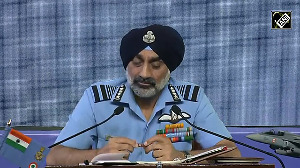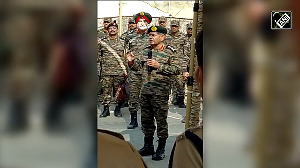The correspondence, which has remained secret for nine months, was released by US Representative Howard L Berman (Democrat, California), current chairman of the HFAC, reports the Washington Post. The correspondence was between the State Department and Berman's predecessor, the late Tom Lantos.
Although US Congress had passed the Hyde Act to deal with the Indo-US nuclear agreement, many American Congressmen had expressed concerns whether India was being given extra leeway. The State Department had answered their queries, some 45 in all, in a letter sent to Lantos on January 16 this year.
The State Department even requested that the correspondence be kept a secret since they were considered sensitive, but it was not classified. An earlier release of the correspondence could have added muscle to the chorus against the nuclear deal in India's Parliament and made the outcome of the government's confidence motion on July 22 closer than what it was.
Two weeks ago, when the 45-member NSG met to consider the India exemption, consensus was elusive even though the US pressed the body to go easy. Some 20 nations pressed for around 50 amendments to the draft circulated at the NSG meet. However, the correspondence released by Berman shows that the conditions the US wants the NSG to impose on India are a lot easier than what Washington, DC, itself will impose on India.
A spokesperson for US Representative Berman said he decided to release the correspondence so the US Congress, which could soon be debating the nuclear deal, would have the 'relevant information'.
Interestingly, in August 2007 Prime Minister Manmohan Singh had told Parliament that the nuclear deal does not affect India's right to undertake future nuclear tests, if necessary.'
But the correspondence released by Berman says the US would help India only in case of 'disruptions that may result through no fault of its own' like trade war or market disruptions. 'The assurances don't insulate India against the consequence of a nuclear test or violation of nonproliferation commitments'.
The correspondence also says the supply assurances made by the US are not legally binding but merely a commitment made by President George Bush, and that US will not assist India in the 'design, construction or operation of sensitive nuclear technologies' to India even though it is permitted by the Hyde Act.
Interestingly, it is the US that is pushing for the NSG to approve the nuclear deal so that it can make it to US Congress before it adjourns this month.





